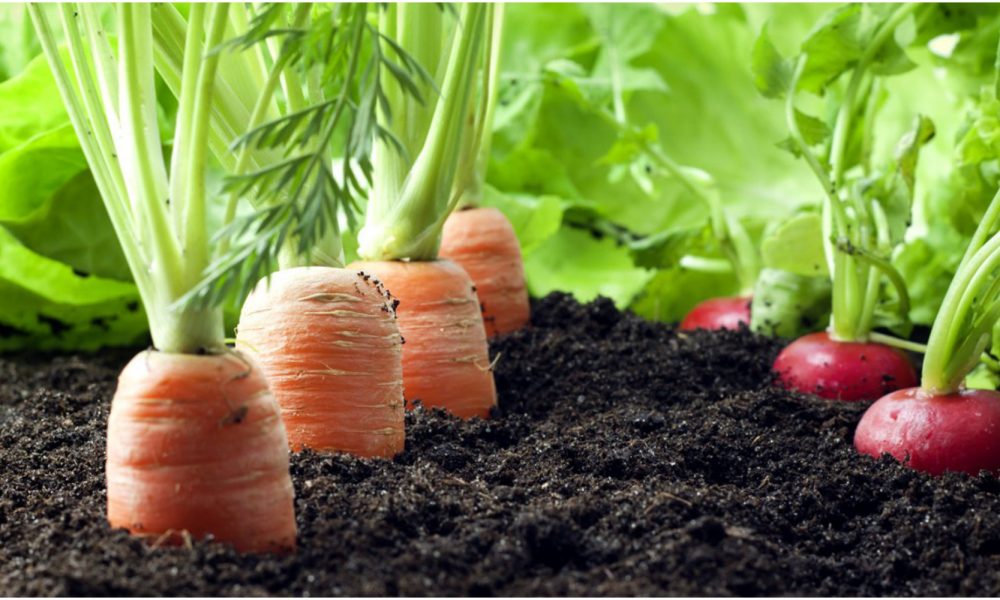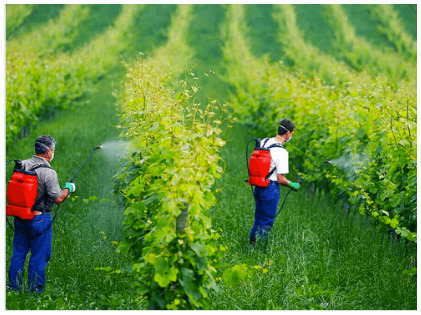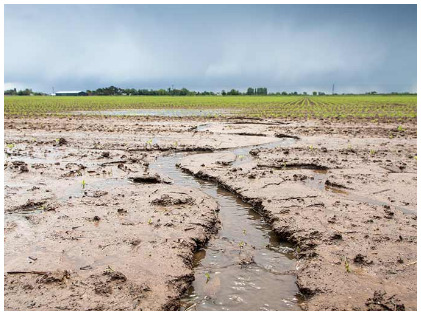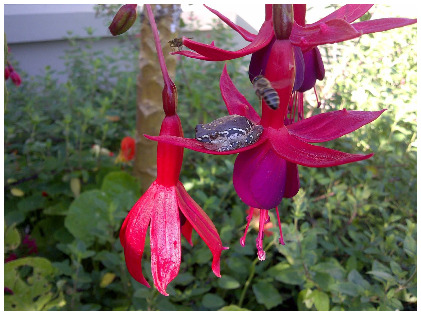
Conventional Farmers Need to Consider Shifting to Organic Farming – Here’s Why!

Organic farming is a profitable venture, and it isn’t just because organic foods are more appealing purchases for consumers, both as a more ethical and healthier option over commercial produce. However, there are more advantages to organic farming than just the money and ethics behind it. Here are the ways organic farming practices are advantageous for the environment.
Minimizes Harmful Chemical Pesticides
 It’s been noted that should every US farmer convert their farming to the organic kind, they could potentially eliminate 500 million pounds of harmful, persistent pesticides that enter the environment each year. The environmental issues caused by excessive use of pesticides and farming chemicals are the evolution of pesticide-resistant diseases, contamination of water, soil and air, and the interruption of crop rotation, causing other issues like erosion or depletion of certain necessary compounds in the soil.
It’s been noted that should every US farmer convert their farming to the organic kind, they could potentially eliminate 500 million pounds of harmful, persistent pesticides that enter the environment each year. The environmental issues caused by excessive use of pesticides and farming chemicals are the evolution of pesticide-resistant diseases, contamination of water, soil and air, and the interruption of crop rotation, causing other issues like erosion or depletion of certain necessary compounds in the soil.
Builds Healthy Soil
In order to grow a healthy crop, you have to begin with healthy soil. Treating the soil with harmful chemicals and pesticides can result in the soil in which plants cannot thrive without help. However, natural cultivation practices are significantly better compared to chemical soil management. The USDA Agricultural Research Service conducted nine-year research that showed that organic farming practices build up organic soil matter dramatically better than conventional farming centered around the no-till method. It is said by Dr. Elaine Ingham that one teaspoon of organic soil rich in compost contains between 600 million and 1 billion helpful bacteria of over 15K species. In contrast, chemical treated soil contains about 100 helpful bacteria in one teaspoon!
Minimizes Erosion
 Organic farming doesn’t just develop the soil to make it healthier and more conducive for plant growth, but it also assists to combat serious land and soil issues like erosion. A large study conducted to investigate a comparison between adjoining chemically treated and organic wheat fields revealed that the organic wheat field possessed eight inches more topsoil than the chemical treated on, with a third less erosion has taken place. Erosion is a serious issue that affects food supply, land, and humans in general. Organic agriculture help to discourage erosion from taking place.
Organic farming doesn’t just develop the soil to make it healthier and more conducive for plant growth, but it also assists to combat serious land and soil issues like erosion. A large study conducted to investigate a comparison between adjoining chemically treated and organic wheat fields revealed that the organic wheat field possessed eight inches more topsoil than the chemical treated on, with a third less erosion has taken place. Erosion is a serious issue that affects food supply, land, and humans in general. Organic agriculture help to discourage erosion from taking place.
Reduces Effects of Global Warming
The longest-running comparison of organic and conventional farming operating side-by-side is the Rodale Institute Farming Systems Trial, and this trial has been in operation since 1981. It has revealed that agricultural systems that are healthy and organic can reduce carbon dioxide as well as slow climate change. They propose that if just 10000 medium-sized US farms made the choice to convert to organic farming, enough carbon would be locked into the soil equivalent to the removal of 1,174,400 cars off of the roads.
Supports Water Health and Conservation
Water supplies and water health are under serious threat at the moment. When we risk the supply and health of our water, both people, as well as the planet, wind up suffering the consequences. A major pollutant of US river streams is runoff from conventional farms, flooding toxic fertilizers, animal waste, and harmful chemical pesticides into the water. Organic farming does not produce harmful runoff and actually assists to conserve water since organic farming makes use of mulching and correctly amending the soil.
Encourages Biodiversity
 There is a relationship between the biodiversity of a farm and how stable it is. This relationship is directly proportional. Organic farming is conducive for healthy biodiversity, making the farm resilient to pest issues, weather, and disease. A rise in infectious disease is common in farms with reduced biodiversity, and this isn’t good for the planet or its people.
There is a relationship between the biodiversity of a farm and how stable it is. This relationship is directly proportional. Organic farming is conducive for healthy biodiversity, making the farm resilient to pest issues, weather, and disease. A rise in infectious disease is common in farms with reduced biodiversity, and this isn’t good for the planet or its people.
Reduces Growth of Algal Blooms
Algal blooms have a negative effect on both marine life and on humans. These algal blooms adversely affect recreation and tourism, so that even regional and local economies suffer the consequences. There are several factors that contribute to the development of algal blooms, but a primary cause is conventional farming which makes use of petroleum-based fertilizers.
With our planet and our people facing so many risks in the present day, it is becoming a priority to consider the effects of everything that we do on the planet and the people. Organic farming has many positive benefits that far outweigh any advantages that conventional farming yields, and it would be in the better interest of the world and everyone living in it for a shift from conventional farming to organic farming to be made.
More in Business & Investments
-
`
FTX Estate Sues Investment Firm for $700 Million
In a legal battle that has caught the attention of the crypto world, the bankrupt estate of crypto exchange FTX has...
December 4, 2023 -
`
The Sky’s the Limit: Qantas Aims for Ultra-Long-Haul Records
Long-haul flights are making a grand return, signaling the optimism among airlines that international travel is on the rebound post the...
December 2, 2023 -
`
WWE SmackDown to Make a Comeback on USA Network in 2024
In a surprising twist, WWE’s Friday night staple, “SmackDown,” is bidding farewell to Fox and heading back to its old stomping...
November 24, 2023 -
`
Why Women Face Higher Out-of-Pocket Health Expenses
In healthcare, disparities persist, and a recent report from Deloitte underscores a significant financial gap between working women and men in...
November 18, 2023 -
`
Elon Musk vs Bill Gates: The Clash of Titans
In the realm of the world’s wealthiest individuals, a simmering rivalry has been captivating public attention. It’s not a clash of...
November 7, 2023 -
`
The Power Of Disconnecting
In our digitally driven age, where smartphones, tablets, and laptops have become extensions of ourselves, disconnecting might seem daunting. However, the...
October 31, 2023 -
`
JCPenney’s Bankruptcy: The End of an Era
JCPenney filed for bankruptcy in a move echoing the struggles of many retailers in the wake of the COVID-19 pandemic. This...
October 26, 2023 -
`
Reasons Why You Need a Financial Plan
Financial planning is not just for the wealthy or those nearing retirement. It’s a crucial tool for anyone seeking financial security...
October 19, 2023 -
`
How Brad Pitt Spends His Millions All Over the World
Brad Pitt, the charismatic Hollywood superstar, has left an indelible mark on the silver screen and made an impact in the...
October 10, 2023















You must be logged in to post a comment Login